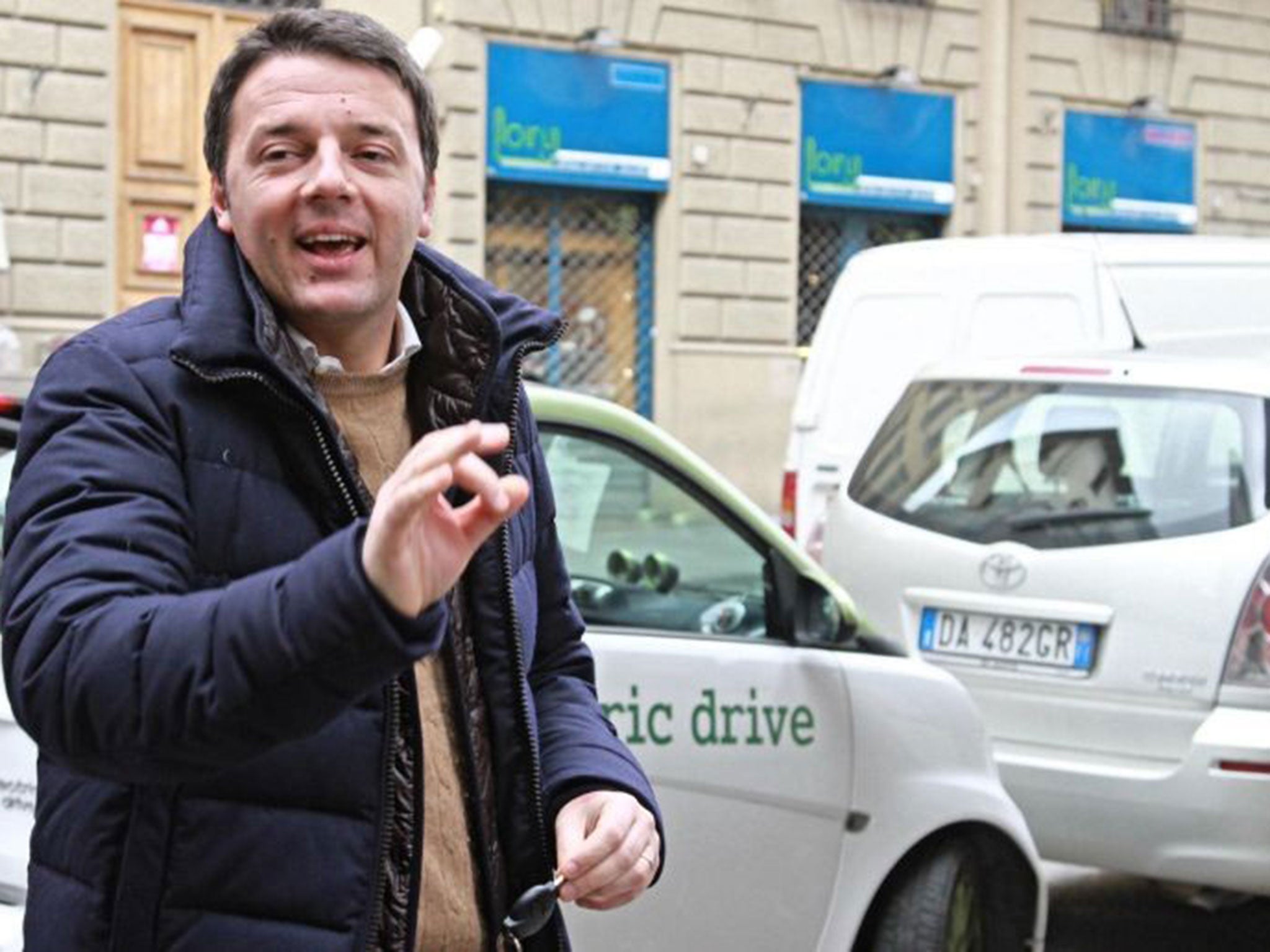Matteo Renzi set to be asked to be new Italian prime minister
Renzi would become Italy's youngest premier since the formation of the republic after World War II

Your support helps us to tell the story
From reproductive rights to climate change to Big Tech, The Independent is on the ground when the story is developing. Whether it's investigating the financials of Elon Musk's pro-Trump PAC or producing our latest documentary, 'The A Word', which shines a light on the American women fighting for reproductive rights, we know how important it is to parse out the facts from the messaging.
At such a critical moment in US history, we need reporters on the ground. Your donation allows us to keep sending journalists to speak to both sides of the story.
The Independent is trusted by Americans across the entire political spectrum. And unlike many other quality news outlets, we choose not to lock Americans out of our reporting and analysis with paywalls. We believe quality journalism should be available to everyone, paid for by those who can afford it.
Your support makes all the difference.The mayor of Florence, Matteo Renzi, has been summoned to the Italian presidential palace, where he is today expected to be asked to form a new government and become the country's youngest-ever premier.
The 39-year-old Democratic Party leader's first challenge would be to form a coalition that is dynamic and harmonious enough in Italy's squabbling landscape to kick-start the economy, create jobs and prod Parliament to enact electoral reforms designed to make the nation more governable.
President Giorgio Napolitano's office announced on Sunday that he will meet with Renzi the following day.
Through internal maneuvering in the Democratic Party, Renzi engineered the collapse last week of Premier Enrico Letta's government. That 10-month-old broad coalition of bitter rivals was cobbled together after last year's election yielded political gridlock.
Only days before Democratic Party leaders used a no-confidence vote to force Letta to resign on Friday, the ambitious Renzi had assured the premier that he had nothing to worry about — promising that he would only seek the premiership through the ballot box.
If he becomes premier now, Renzi would be the youngest one in the dozens of governments that Italy has had since the republic was formed after World War II.
Detractors who have criticised Renzi as too ambitious and power hungry have pointed out that Benito Mussolini also was 39 when Italy's monarch asked the Fascist leader to form a government in 1922.
If tapped by Napolitano as expected today, Renzi will have to try to forge a solid coalition government with centre-right and centrist parties, since his own Democrats cannot command a reliable majority in both chambers. Then Renzi must win mandatory confidence votes in Parliament, convincing lawmakers he is the man of the hour needed to be the premier of the economically-struggling country.
One hurdle emerged on Sunday.
Angelino Alfano, the leader of a centre-right force in Letta's coalition, told his party's base that he will demand promises from Renzi before joining the new government. Alfano, the interior minister in the outgoing government, pressed Renzi to identify his goals.
Alfano's small party broke away from longtime conservative leader Silvio Berlusconi, who is now the main opposition leader.
Renzi has alienated some in his own party by reneging on pledges to become premier only through a general election. And Renzi's abrupt betrayal of Letta left many wondering why.
Italy's economy has just shown its first signs of positive growth after several years of shrinking or being stagnant. The much-watched ''spread“ between interest rates on Italian state bonds and benchmark German ones has narrowed since the turmoil in world financial markets forced Berlusconi to resign in 2011.
Asked on Sky TG24 TV what was behind Renzi's power move, Economy Minister Fabrizio Saccomanni cited “increasing impatience” with Italy's economic morass.
The heads of Italy's industrialists lobby and the chief of the nation's largest labor confederation recently stepped up their grumbling about the slow pace of progress by the Letta government.
AP
Subscribe to Independent Premium to bookmark this article
Want to bookmark your favourite articles and stories to read or reference later? Start your Independent Premium subscription today.
Join our commenting forum
Join thought-provoking conversations, follow other Independent readers and see their replies
Comments